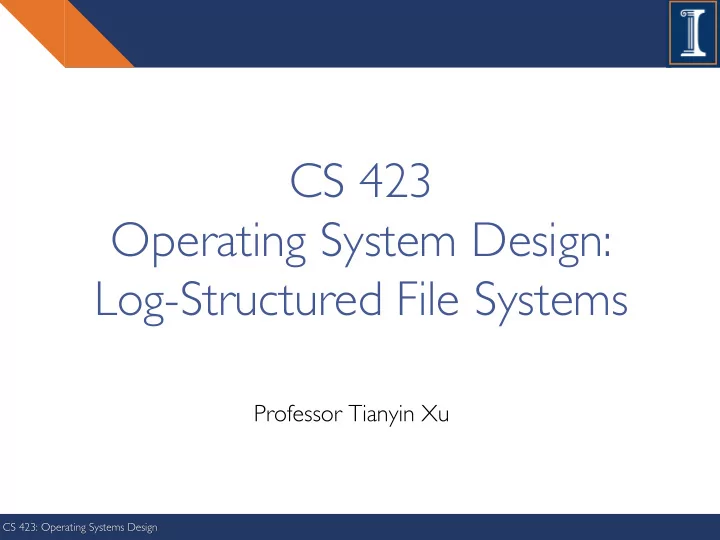

CS 423 Operating System Design: Log-Structured File Systems Professor Tianyin Xu CS 423: Operating Systems Design
MP1/MP2/Midterm Stats CS 423: Operating Systems Design 2
Recap ■ File ■ Disk block ■ Inode ■ To read/write a file, we have to find the inode of the file first. ■ Sequential reads/writes are MUCH faster than random reads/writes ■ Why? CS 423: Operating Systems Design 3
Berkeley FFS / UNIX FS Alternate figure, same basic idea CS 423: Operating Systems Design 4
Computers Circa 1991 ■ Disk bandwidth is improving rapidly ■ Computers have more memory (up to 128 MB) ■ And, alas, disk seek times are … still dog slow! ■ The overhead was becoming larger now (as the bandwidth is higher..) ■ What can we do to solve the problem? ■ Why not we always do sequential I/O? CS 423: Operating Systems Design 5
Thought Experiments CS 423: Operating Systems Design 6
Let’s do a design CS 423: Operating Systems Design 7
Debates CS 423: Operating Systems Design 8
Flash memory ■ No need for sequential writes - just need to find unused blocks ■ Can do 1->0 rewrites - Maintain a bitmap of used blocks at fixed block ■ Lots of complexity - Bits wear out, read disruption, etc - Who should deal with those complexity? CS 423: Operating Systems Design 9
Flash memory ■ No need for sequential writes - just need to find unused blocks ■ Can do 1->0 rewrites - Maintain a bitmap of used blocks at fixed block ■ Lots of complexity - Bits wear out, read disruption, etc - Who should deal with those complexity? CS 423: Operating Systems Design 10
Recommend
More recommend